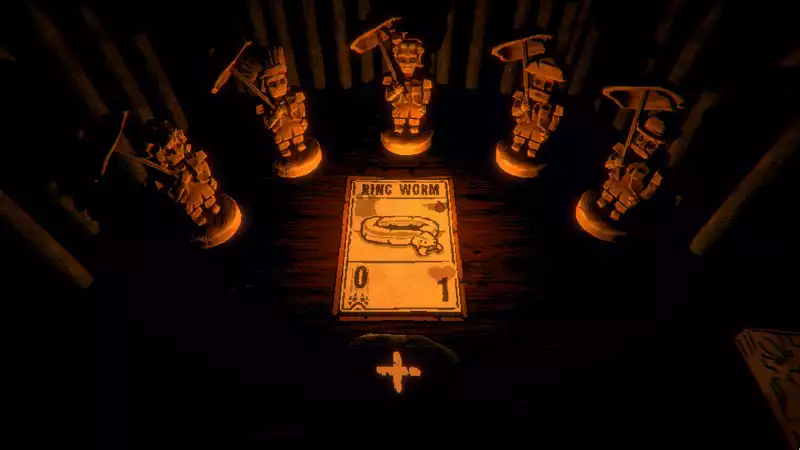Sometimes board game night feels like a trap. Everyone else might want to play the latest Kickstarter-funded blockbuster that comes with 100 miniatures and takes an hour to set up, or a European worker placement game about farms and power plants and colonialism. That's what social pressure is all about, and "Inscryption" turns that into food for horror, locking you in a creepy shack and making you play deckbuilders.
The villain, a shadowy figure with staring eyes and long fingers, waits patiently at the table for the game to begin. He must play to the death, but he can also stand up and stretch his legs. On the wall is a shelf of knick-knacks, a skull, a safe, and a cuckoo clock. They are all part of a larger puzzle: "How do I get out of this shack?
Inscryption's best, the card game and the environment are in harmony. The solution to the puzzle in the hut is hidden in a dull grimoire explaining the rules of the card game, and solving it will result in a card in the deck as a reward. The two run in parallel. Not a lot of fun when you get blocked in one, though, as you have to bang your head against the other for a while.
The game within the game may be a deck builder, but it looks more like a single-player mode of a collectible card game than Slay the Spire. You collect decks of animal friends, bullfrogs, wolf cubs, weasels, and other animals with familiar stats and thematic abilities. Skunks stink, so enemy cards that attack them are reduced in power, and beavers create defensive dams.
The mechanics of this card game are intentionally off and grotesque. Most cards have a blood cost, which must be paid by sacrificing another card. (There is a separate deck of free cards, Squirrel, worth 1 blood per card for this purpose.) Damage to you and your opponent is counted in teeth, not hit points. To win a round, you must outnumber them by five teeth. On the table is an item that helps tip the balance. It is a pair of pliers.
Your opponent is not simulating another player, nor is he playing by the same rules. He is like a dungeon master or "hand of fate" dealer, narrating encounters and putting on voices and masks to play NPCs while you traverse the map. The cards are full of gold," he exclaims as Prospector, the boss-enemy who turns cards into rocks with a pickaxe. Then he takes off his mask, arranges some minis around a campfire, and plays a scene in which a group of suspicious and hungry travelers offer to warm one of the beasts by the campfire. He may be a murderous kidnapper, but I respect him.
I spent many hours in The Elder Scrolls: the single-player story is fun with twists: a stone wall across the middle of the table, a stormy pirate ship that slides cards back and forth.Inscryption's twists are also novel. In one match, all of the wolves' cards gain the flying ability; in another, a hook drags my cards across the board to my disadvantage.
Like most deckbuilders, Inscryption is run-based. If you lose, you start over, but you get to design one new card to use in your next deckbuilding session. In addition, puzzles solved on board remain solved. The first loss still felt like progress, but after the initial success, I had to repeat the victory by solving another puzzle, which held me back. The multi-stage boss battles, while initially full of surprises such as trading OP cards for animal pelts, became tedious with each repetition. The endearing creepiness of the game, in which cards beg not to be sacrificed and a fungal doctor stitches them to pieces, has been eroded by repetition.
"Inscryption" is the work of the creator of "Pony Island" (in which a demon makes you play a buggy autorunner forever) and "The Hex" (in which a video game character relives flashbacks of the various genres in which he appeared) by Daniel Mullins Games), and "The Hex" (in which a video game character relives flashbacks of the various genres in which he appeared). All three are games about games, with more layers than the winning cake in "The Great British Bake Off," and when "Inscryption" reveals an additional layer, it feels more like a chore than a revelation, though I won't reveal specifics, but it's an important one. Whereas "Pony Island" was lean and pointed, "Inscryption" is more like "The Hex.
For the first few hours, "Inscryption" is an enigmatic, eerie romp. That feeling fades long before it's over, and now I'd rather play something else, followed by a night of board games. Even if it's some Kickstarter nonsense that comes with 5 kilograms of plastic figures and takes half the night to explain.
.

Comments